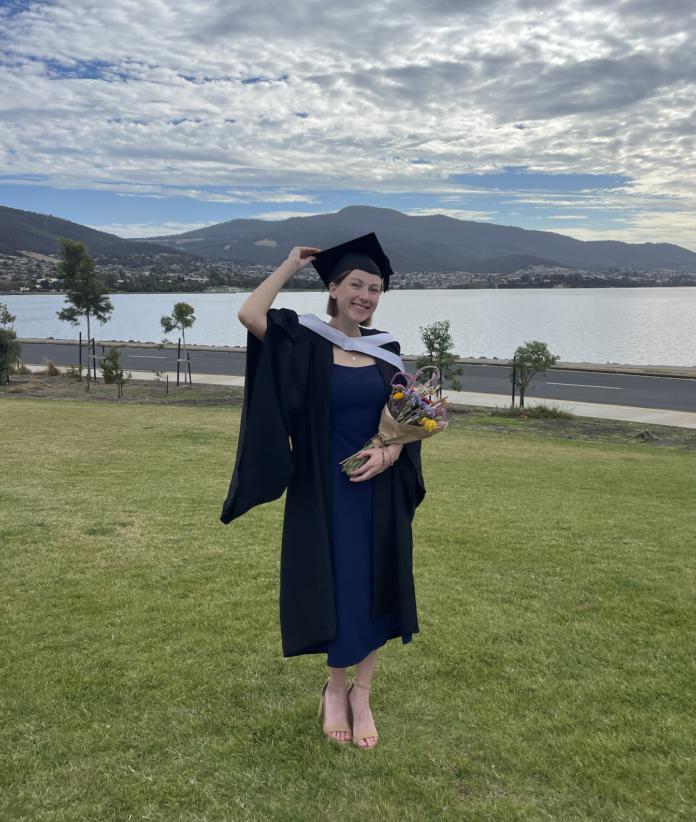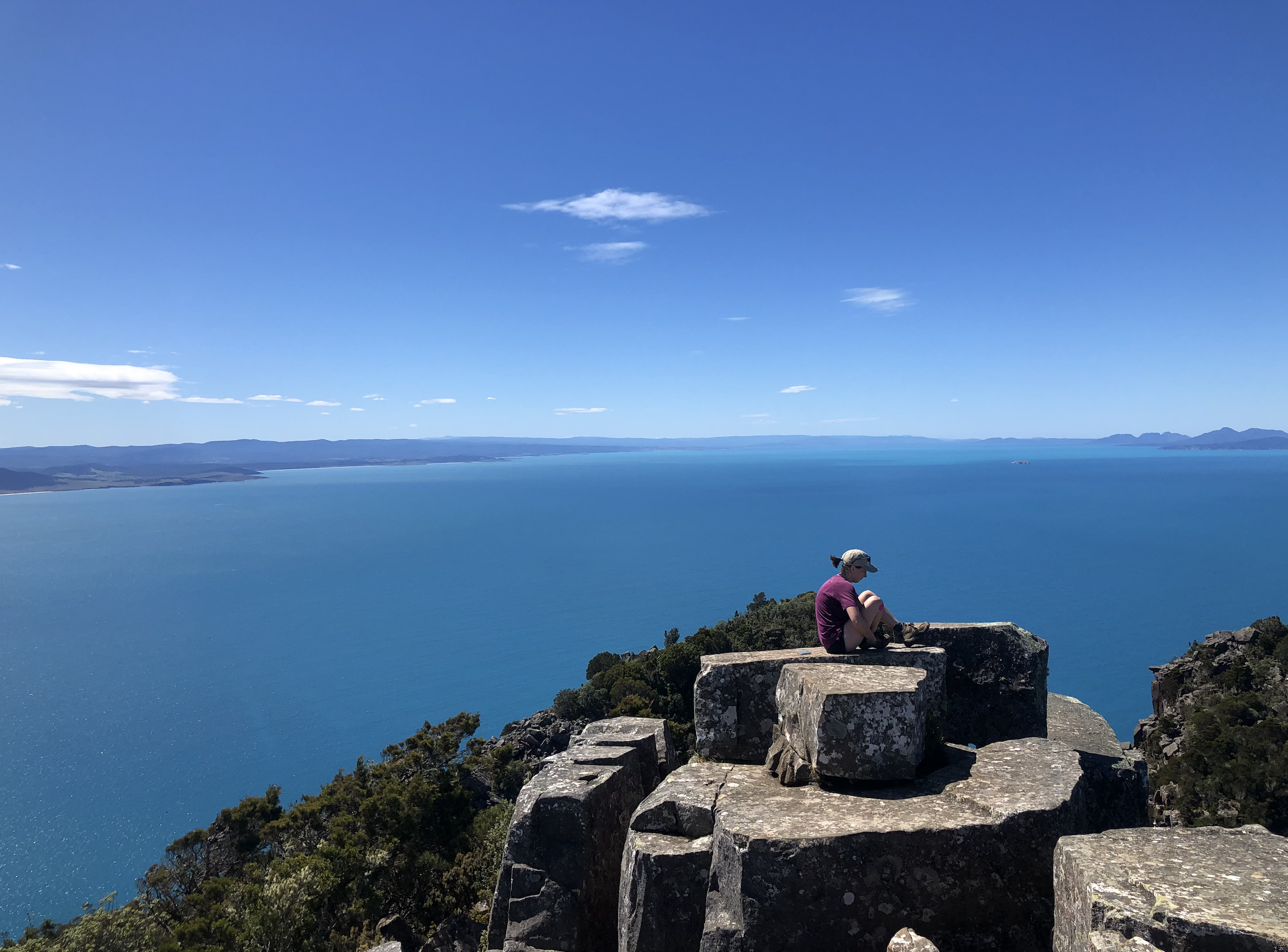
Lane Cove local Ruby Hoyland has gone above and beyond in completing her Bachelor of Science Honours, being awarded Valedictorian at the University of Tasmania (UTAS).
“Yeah, unexpected to be asked to be the Valedictorian and give the speech and everything,” Ruby told ITC over a Zoom call from Hobart, “I wasn’t aiming for it, but I was definitely working hard, but mostly I just I really enjoyed the project that I was doing.”
The 25-year-old’s work is centred around the impacts of fire on non-living things, specifically geo-sites, which are areas of recognised value such as scientific, educational or tourism.
Ruby not only received the highest possible grade for her studies but also had her works published in CSIRO and MDPI, two highly regarded journals.
“I was basically looking at developing a new framework and method for figuring out what the risk of fire is for geo sites. And so geo sites are areas of geological importance. They have special values,” Ruby shared.
“Bush fires, and even managed fires can impact some of those values. And so unlike biodiversity and ecology, we don’t actually have a risk assessment that fits for geological heritage. And so that’s what my project was trying to develop.”

The first paper was a literary overview of current research on fire and geodiversity internationally. While the second paper focused on a prototype they developed.
“The second paper was one of the first prototypes that we came out with, which was making a model that looked at fire in these different rock types,” Ruby told ITC.
“But that was actually a failed experiment, and the point of publishing that one was to help anyone else along the same path not make the same mistakes. But the main outcome of my thesis is still coming up. It’ll be the next paper.”

The overachiever’s journey to valedictorian turned into a tale of fire and ice.
A Lane Covian for Her First 19 Years
After spending her first 19 years in the same Lane Cove home, Ruby pursued studies in Marine and Antarctic science, a course unique to UTAS.
However, despite needing to move away to begin her academic pursuits, she admits the initial inspiration to become a scientist spawned from growing up in her Lane Cove environment; surrounded by greenery in the suburb as well as support at her school, Lane Cove Public.
“I think even just living in Lane Cove, it was such a green suburb, to begin with, and being at school and doing geography and humanities in the early years for sure, definitely put me on a path to want to protect a lot of the natural resources that we have,” she said.
“And also just the general culture of being in a school and a community that believed in you and believed that you could do whatever you wanted to do.”

Ruby studied marine and Antarctic science for about a year before taking the unit Geo Heritage and Geo-tourism. It was here she developed a different way of thinking about landscapes and natural environments.
From there she changed her degree and transferred her units to a Bachelor of natural environment and wilderness studies. Years later, still thinking about the initial unit which inspired Ruby to switch degrees, she went back to her lecturer and asked if there were any projects to work on in relation to that unit – and so started her research into fire and geodiversity.
There were no Honours available in her Bachelor to pursue this, so she once again transferred degrees, this time into a Bachelor of Science where she was awarded Valedictorian.
The Lane Cove local says although where she ended up was a bit of 180 degrees from her Antarctic aspirations, her fields aren’t completely separate. Concerningly there are now bushfires happening in the Arctic Circle, so it’s not unreasonable to believe they could be conducting fire studies on the sub-Antarctic islands in a few years, if not eventually down in Antarctica.

But for now, Ruby says her immediate future will be in Hobart, continuing her studies for a PhD and writing her third paper which will be the main outcome of her thesis in her project, involving a new prototype method and a tool that could be used by protected areas managers and fire response teams.
When asked if her love of science initially developed from her parents, Ruby said for she and her sister the apples fall a little far from the tree in that aspect, but they do land in the same basket.
“My mom works in tourism, and my dad works in recycling. So it’s not a super sciency household, although my sister is also in a science field now,” Ruby said.
“She’s an academic weapon. She just got a University Medal from University of Newcastle, so I think it’s a pretty good year for my parents this year.”
The pursuit of science can be a difficult one, as Ruby puts it, there’s a lot of failing, even with all her success. But for aspiring scientists out there, the Valedictorian has this advice.
“Give it go, because there’s so many lessons that even if you don’t end up where you think you’re going, it’s really worthwhile just to explore the world through different lenses. Keep trying, because science is just about failing again and again and again to get it right.”














